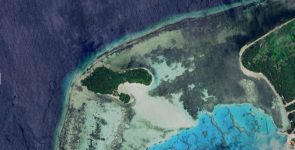The Maldives is currently embroiled in a heated debate regarding the nation’s economic health, with both the current administration and the opposition presenting contrasting narratives. The economic slump and mounting debt are central to these discussions, with each side attributing blame to the other. To comprehend the full picture, it is essential to delve into the perspectives of both the ruling party and the opposition.
Opposition’s Critique
The opposition, led by the Maldivian Democratic Party (MDP), has vehemently criticised the current administration for its handling of the economic crisis. Former Finance Minister Ibrahim Ameer has been particularly vocal, asserting that the present government has failed to manage the fiscal challenges despite being well-informed during the transition period. According to Ameer, the previous administration had secured assurances of USD 700 million for budget support, a claim the current government has not substantiated with tangible results.
Ameer further argued that the economic distress is a result of the “side effects” of necessary fiscal measures taken during the MDP’s tenure, which included substantial spending to mitigate the impacts of the Covid-19 pandemic. He defended the previous government’s borrowing, highlighting that out of MVR 64 billion in debt, MVR 19 billion was directed towards pandemic management. Additionally, investments were made in crucial infrastructure projects, including the development of Velana International Airport and various water and sewerage projects.
The opposition’s stance is that while the previous administration’s actions were calculated and aimed at long-term recovery, the current government has not only failed to continue these efforts effectively but has also mismanaged the state’s finances. Ameer pointed out that despite promises during the transition, the current administration has not secured the necessary funds, and their attempts have often relied on dubious proposals, further exacerbating the economic woes.
Government’s Defence
Conversely, the ruling administration, led by President Mohamed Muizzu, has laid the blame for the economic downturn squarely on the shoulders of the previous MDP administration. During parliamentary debates on the new debt bill, government MPs accused the former administration of financial mismanagement and excessive borrowing. Funadhoo MP Mohamed Mamdhooh claimed that the MDP withdrew loans equivalent to 40 years of debt within a five-year span, implying a lack of fiscal responsibility.
Kaashidhoo MP Muthasim Ibrahim echoed these sentiments, expressing concern over the state’s debt, which reportedly rose to MVR 120 billion from MVR 60 billion during the MDP’s tenure. He called for a comprehensive investigation into the use of these funds, suggesting that the previous administration’s actions had led to significant economic damage.
In defence of their fiscal policies, government officials emphasized the necessity of the debt bill, which aims to manage state debt more effectively and ensure transparency in borrowing processes. The bill includes provisions for better oversight and procedures for loans taken by local councils and state-owned companies, aiming to prevent a recurrence of past mismanagement.
The Path Forward
Both sides present compelling arguments, highlighting the complexity of the Maldives’ economic situation. The opposition defends its extensive borrowing and spending as essential measures to combat an unprecedented global pandemic and invest in the nation’s future. Meanwhile, the current administration criticizes these actions as reckless and unsustainable, advocating for stringent fiscal reforms to stabilize the economy.
A balanced approach, recognizing the valid points from both perspectives, is crucial. The economic challenges faced by the Maldives require a concerted effort that transcends political affiliations. Sustainable fiscal policies, transparent governance, and strategic investments are necessary to navigate the nation out of its current economic predicament. The focus should be on collaboration and accountability to ensure long-term economic stability and growth for the Maldives.



















